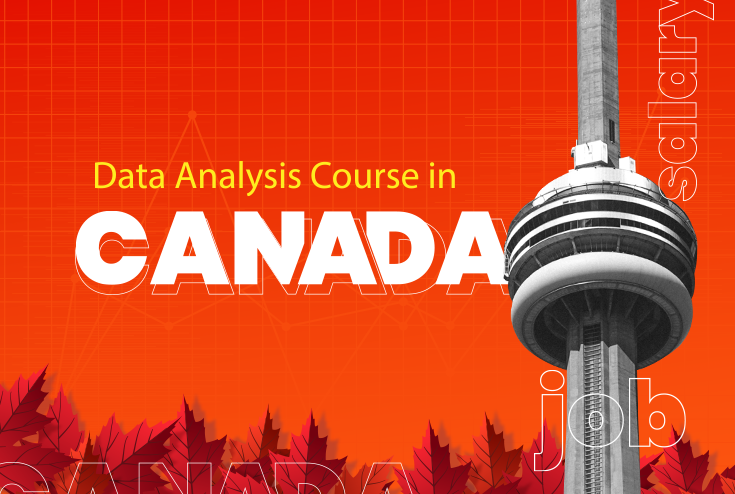
Data Analysis Course in Canada
Data Analysis is undoubtedly one of the most desired skills in today's digital age. With the exponential growth of data, companies are increasingly in need of professionals who can turn these data into valuable insights. If you're looking to build your career as a Data Analyst, studying in Canada might be an excellent opportunity for you.
Table of Content:
- Introduction
- Why Data Analysis?
- Studying in Canada
- Data Analysis Courses
- Admission Process
- Career Prospects
- Conclusion
- FAQs
Why Data Analysis?
Importance of Data Analysis
Data analysis is at the core of decision-making processes in various industries today. Businesses are leveraging data to gain insights, optimize operations, and drive profits. As a data analyst, you'll have the power to shape strategic decisions by making sense of complex data patterns.
Growth in Data Analysis Field
With the advent of technologies such as Machine Learning and Artificial Intelligence, the demand for data analysts is skyrocketing. According to the World Economic Forum, by 2022, data analysts will be among the most in-demand roles globally.
Why Study in Canada?
Benefits of Studying in Canada
Canada is a hub for high-quality education and is widely recognized for its diverse culture and welcoming of international students. With excellent infrastructure, research opportunities, and a supportive learning environment, it's a perfect destination for students looking to pursue a course in Data Analysis.
Canadian Education System
The Canadian education system is internationally respected for its quality and emphasis on research in technology and innovation. The universities here offer a range of programs designed to provide students with theoretical knowledge and practical skills.
Best Data Analysis Courses in Canada
Universities and their Courses
Canada offers a plethora of data analysis courses in renowned institutions such as the University of Toronto, the University of British Columbia, and McGill University. These courses are designed to equip students with skills like data mining, predictive modeling, data visualization, and more.
Course Content and Structure
Typically, a Data Analysis course will cover key areas such as statistical methods, data management, and data visualization. It may also include advanced topics like machine learning, artificial intelligence, and big data.
Admission Process for International Students
Eligibility Criteria
The admission criteria for Data Analysis courses in Canada typically include a bachelor’s degree in a relevant field, English language proficiency, and sometimes, work experience. You might also need to provide letters of recommendation and a Statement of Purpose.
Steps to Apply
Start with shortlisting the universities and the courses you are interested in. Then, prepare for any entrance exams if needed, gather all your documents, and apply through the universities' official websites. Don't forget to meet the deadlines and stay updated with the application status.
Career Prospects after a Data Analysis Course
Job Opportunities
Graduates with a degree in Data Analysis can look forward to lucrative career opportunities in diverse fields. You can work as a Data Analyst, Business Intelligence Analyst, Data Scientist, or even as a Machine Learning Engineer. Companies across all sectors including finance, healthcare, retail, and technology are always on the lookout for skilled data analysts.
Future Trends
The future of data analysis is bright with the rise of AI, Machine Learning, and Big Data. Trends suggest a growing demand for data analysts capable of handling complex datasets and making data-driven decisions. As companies become more data-driven, the need for data analysts will only continue to increase.
Conclusion
Choosing to study a Data Analyst course in Canada can be a rewarding decision for your career. With a strong educational system, practical learning approach, and promising job prospects, it's an excellent opportunity to kickstart your journey in the world of data analysis. Remember to consider your career goals, do your research, and choose the program that suits you best.
Frequently Asked Questions
What are the top universities in Canada for studying data analysis?
Some of the top universities include the University of Toronto, the University of British Columbia, and McGill University.
What is the average cost of studying Data Analysis in Canada?
The cost can vary greatly depending on the university and the specific course, but generally, international students should expect to pay between $15,000 and $30,000 per year.
What are the job prospects for Data Analysts in Canada?
Job prospects are promising. Many graduates find roles in sectors like finance, healthcare, retail, and technology.
Do I need work experience to apply for a Data Analysis course in Canada?
While some universities prefer candidates with work experience, others accept fresh graduates. You'll need to check the specific requirements of the course you're interested in.
What skills do I need to become a successful Data Analyst?
Some key skills include statistical analysis, programming (like Python or R), data visualization, machine learning, and a strong understanding of databases. Soft skills like problem-solving and communication are also essential.




